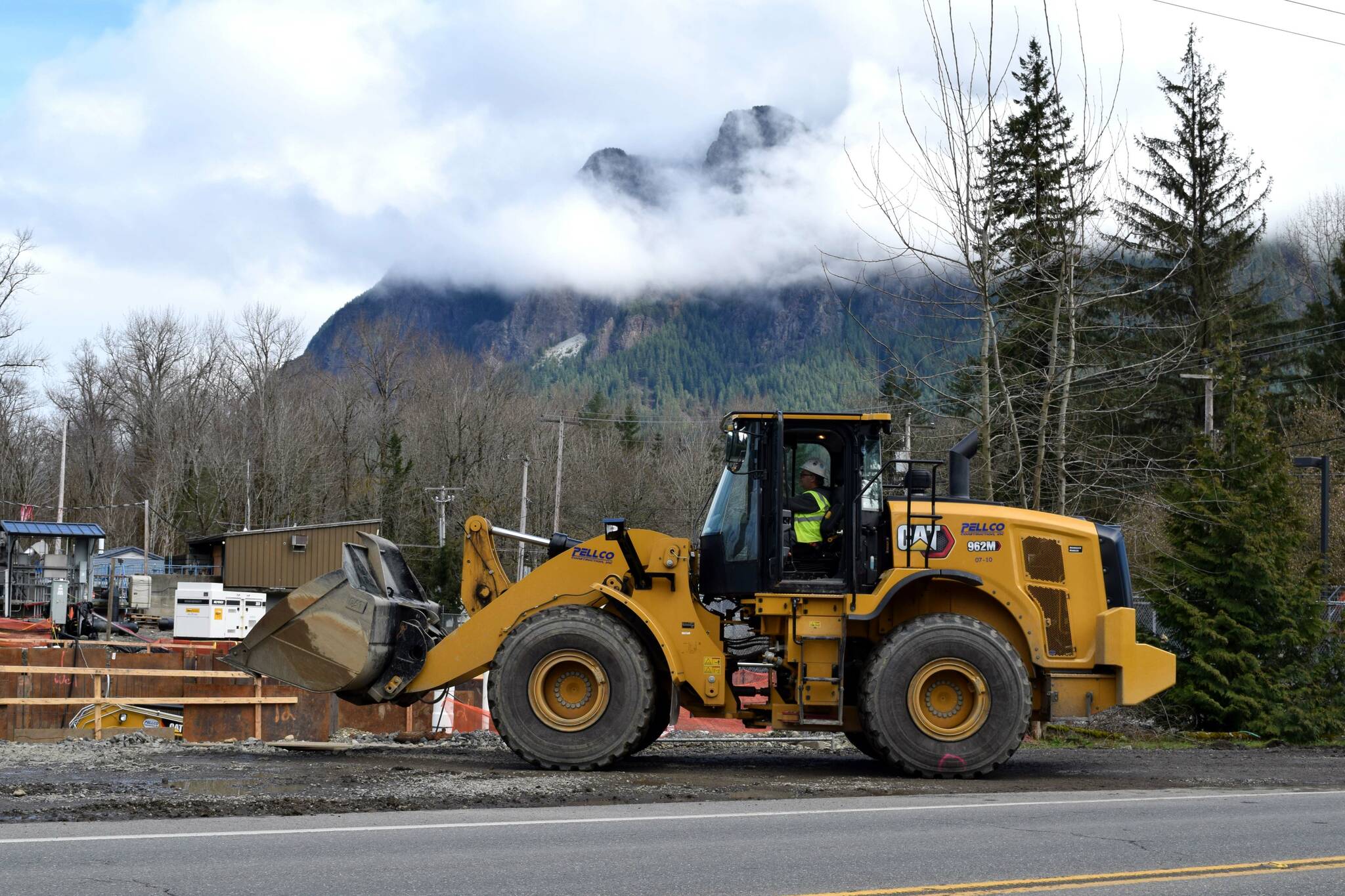City officials in North Bend are seeking a third-party review of a concrete tank at its wastewater treatment plan, which they say is cracked and failed a recent test to determine if it could adequately prevent leakage.
Several cracks around the clarifier tank were found shortly after its construction in 2020, said city engineer Don DeBerg. While remedial actions have been taken to seal those cracks, DeBerg said the tank still leaks small amounts of water.
DeBerg said the tank is currently leaking water into the ground, which he described as “nothing more than if you were to run your hose on the ground.”
According the city, the tank fails what is known as a watertightness test, a practice where a tank filled with water is left for several days to ascertain if the structure is free of leaks. While minute leakage is permissible, city staff say their tank exceeds that threshold and fails a qualitative analysis.
But the city’s contractor, McClure and Sons, an industrial construction company, disagrees with that assessment, stating they have met parameters outlined in the contract and will perform no further repair, according to city staff.
A representative of McClure and Sons could not be reached for comment.
“We the city disagree that they have met the project’s specifications,” DeBerg told the council.
That disagreement has prompted the city council to approve an $11,000 contract with consulting firm Jacobs Engineering for a third-party opinion on the construction and watertightness test. Jacobs has previously reviewed the design of the tank, city staff said, which it determined to be adequate.
Construction at the wastewater plant has been ongoing for years, as part of a $35 million, multi-year project.
The plant is a vital piece of infrastructure for North Bend, which will need the additional sewer capacity for future housing and commercial development over the next two decades. Currently, little sewer capacity is available to service new development until the plant is finished, Senior City Planner Mike McCarty said last spring.
Construction at the plant began after 2016, when it was discovered to be near failing and a risk to environmental health following years of deferred improvements. The first phase of improvements finished last May and included the leaking clarifier tank. A final second phase is expected to wrap up by 2024.
DeBerg said the city is currently considering further remedial actions to deal with the cracked tank, including coating the inside of the clarifier. If that fails, another option is to tear down the tank and start over, he said, which could cost several million dollars.
Additionally, if Jacobs Engineering determines the longevity of the tank is not impacted by the leaks, there is a possibility the tank could be left in its current condition, DeBerg said.
Questions sent to a city spokesperson seeking additional information about the leaks and its impact on the completion of the wastewater plant were not returned by press time.


